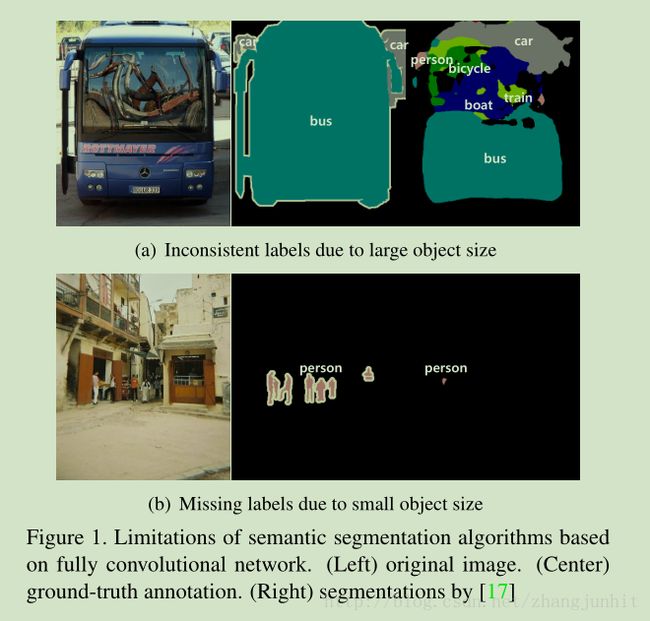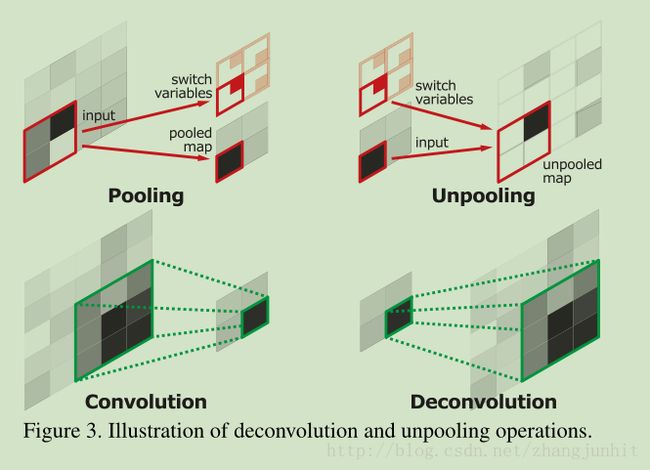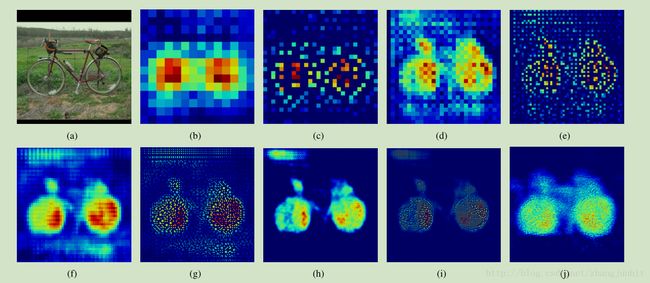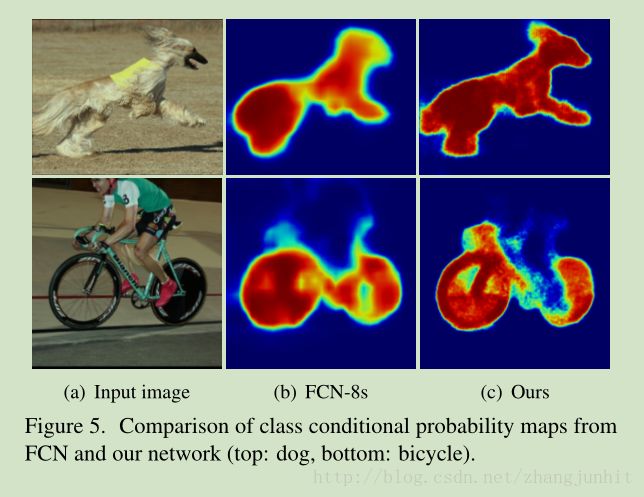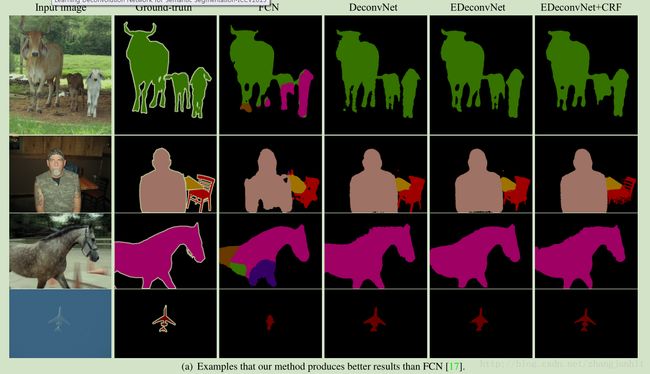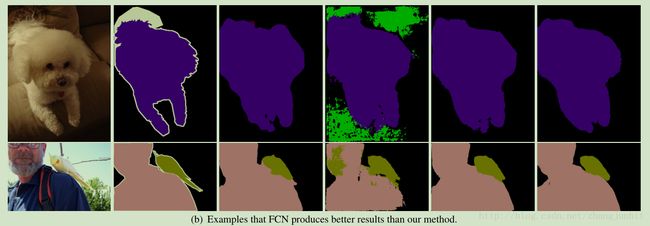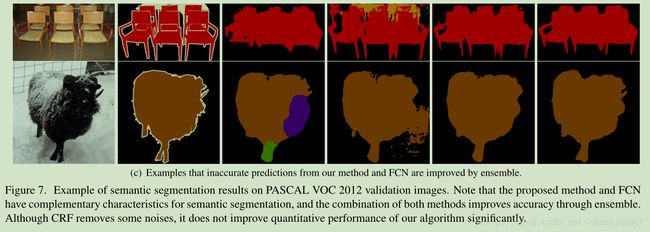- 个人学习笔记7-6:动手学深度学习pytorch版-李沐
浪子L
深度学习深度学习笔记计算机视觉python人工智能神经网络pytorch
#人工智能##深度学习##语义分割##计算机视觉##神经网络#计算机视觉13.11全卷积网络全卷积网络(fullyconvolutionalnetwork,FCN)采用卷积神经网络实现了从图像像素到像素类别的变换。引入l转置卷积(transposedconvolution)实现的,输出的类别预测与输入图像在像素级别上具有一一对应关系:通道维的输出即该位置对应像素的类别预测。13.11.1构造模型下
- 景联文科技:专业数据标注公司,推动AI技术革新
景联文科技
人工智能
数据标注作为AI技术发展的重要支撑,对于训练高质量的机器学习模型以及推动应用领域的创新具有不可替代的作用。景联文科技作为专业的数据标注公司,致力于提供专业的数据标注服务,帮助客户解决AI链条中的数据处理难题,共同推动人工智能技术的进步与发展。一站式数据标注服务景联文科技提供一站式的数据标注服务,涵盖从图像、视频、音频到文本等多种数据类型。•图像标注:对象检测、语义分割、关键点标注、多边形标注等。•
- Python(PyTorch和TensorFlow)图像分割卷积网络导图(生物医学)
亚图跨际
交叉知识Python生物医学脑肿瘤图像皮肤病变多模态医学图像多尺度特征生物医学腹部胰腺图像病灶边界气胸图像
要点语义分割图像三层分割椭圆图像脑肿瘤图像分割动物图像分割皮肤病变分割多模态医学图像多尺度特征生物医学肖像多类和医学分割通用图像分割模板腹部胰腺图像分割分类注意力网络病灶边界分割气胸图像分割Python生物医学图像卷积网络该网络由收缩路径和扩展路径组成,收缩路径是一种典型的卷积网络,由重复应用卷积组成,每个卷积后跟一个整流线性单元(ReLU)和一个最大池化操作。在收缩过程中,空间信息减少,而特征信
- 学习记录——语义分割和实例分割的标签结构
落叶击球
学习笔记学习人工智能
语义分割:一张样本,生成一张掩码图像标签。灰度图像,背景亮度为0,每个目标根据分类赋予不同亮度——1,2,3......实现像素级的类别区分,但无法区分个体。实例分割:原理:一张样本,生成一个多通道的Mat矩阵,也就是多张掩码图像叠在一起。每张掩码图负责存储一个类别的目标,亮度只有0和1,通过通道号区分每个类别。同时,每张掩码图内,每个目标拥有ID号(通过增加一个维度实现),负责区分一个类别中的每
- 语义分割训练精度计算
南太湖小蚂蚁
人工智能深度学习人工智能
语义分割训练的output结果一般是[batch_size,num_classes,width,height]这样的形式,而label的结果一般是[batch_size,width,height],类似如下形状,outputs:[4,6,480,320],而真值label:[4,480,320]。由于维度不同,无法直接比较,所以这两者要比较就要采取一点方法。output里面每个类型都有一个值,要取
- 语义分割笔记
Wils0nEdwards
笔记深度学习计算机视觉
在语义分割任务中,提升自制数据集上baselinemodel的平均交并比(mIoU)和平均精度(mAcc)的难度取决于多个因素。以下是一些关键因素及其对难度的影响:数据集质量:标注质量:高质量的标注对于训练有效的模型至关重要。如果标注存在错误或不一致,模型的性能会受到影响。样本数量:较大的数据集通常可以提升模型的泛化能力,但收集和标注大量样本是一个费时费力的过程。数据多样性:如果数据集包含多样化的
- 遥感影像-语义分割数据集:GID数据集详细介绍及训练样本处理流程
GIS潮流
计算机视觉人工智能机器学习
GID数据集:大规模高分卫星土地覆盖数据集原始数据集详情简介:GID是基于我国Gaofen-2卫星数据而构建的大规模高分辨率遥感图像土地覆盖数据集。GID数据集分为大规模分类集(GID-5)和精细土地覆盖集(GID-15)两个部分。大规模分类集(GID-5)包含建筑、农田、森林、草地和水域等5个土地覆盖类别,共计150景像素级标注的Gaofen-2卫星遥感图像。其中,训练集为120景图像,验证集为
- 遥感影像-语义分割数据集:Vaihingen数据集详细介绍及训练样本处理流程
GIS潮流
计算机视觉
原始数据集详情Vaihingen是一个相对较小的村庄,有许多独立的建筑和小的多层建筑。KeyValue卫星类型未知覆盖区域一个相对较小的村庄,有许多独立的建筑和小的多层建筑-Vaihingen场景城市分辨率5cm数量38张单张尺寸6000*6000原始影像位深8位标签图片位深8位原始影像通道数三通道标签图片通道数三通道官网https://www.isprs.org/education/benchm
- Atrous Spatial Pyramid Pooling(ASPP)空洞空间卷积池化金字塔
m0_55576290
深度学习人工智能
文章目录概要整体架构流程演化过程与代码实现概要ASPP主要用于解决语义分割任务中的尺度问题。在语义分割任务中,需要将图像中的每个像素分类到不同的类别中,而不同物体和结构在图像中可能有不同的尺度。传统的卷积神经网络在提取语义信息时,只能通过固定尺度的卷积核进行操作,因此无法很好地捕捉到不同尺度下的上下文信息。ASPP通过在网络中引入多个并行的分支,每个分支使用不同尺度的空洞卷积和池化操作,来捕获不同
- 深度学习,创新点,模型改进
揽星河@
计算机视觉机器学习深度学习python人工智能
深度学习添加创新点①在现有模型上添加自己的创新点②或者混合多个模型等等③提供创新点添加各种注意力机制,各种模型block。机器学习,目标检测,目标识别,语义分割,GAN,CNN等(只要是深度学习均可)编程语言限于Python,pytorch欢迎大家咨询~
- 【深度学习】COCO API源码解读
CS_Zero
深度学习人工智能
COCOAPI从C、cython,到PythonAPI:实现语义分割标注mask的解析,从具体实现cocoapi/common/maskApi.hcocoapi/common/maskApi.c到Cython封装实现pycocotools._maskcocoapi/PythonAPI/pycocotools/_mask.pyx#distutils:language=c#distutils:sour
- 2020-04-04
奋斗中的小强
SAN:Scale-AwareNetworkforSemanticSegmentationofHigh-ResolutionAerialImages高分辨率航空图像具有广泛的应用,如军事探索和城市规划。语义分割是高分辨率航空图像分析中广泛使用的一种基本方法。然而,高分辨率航空影像地物具有尺度不一致的特征,这一特征往往会导致预测结果的不确定性。为了解决这个问题,我们提出了一个新的尺度感知模块(SAM
- 计算机设计大赛 深度学习人体语义分割在弹幕防遮挡上的实现 - python
iuerfee
python
文章目录1前言1课题背景2技术原理和方法2.1基本原理2.2技术选型和方法3实例分割4实现效果5最后1前言优质竞赛项目系列,今天要分享的是深度学习人体语义分割在弹幕防遮挡上的应用该项目较为新颖,适合作为竞赛课题方向,学长非常推荐!学长这里给一个题目综合评分(每项满分5分)难度系数:3分工作量:3分创新点:3分更多资料,项目分享:https://gitee.com/dancheng-senior/p
- [机器学习]详解transformer---小白篇
是安澜啊
深度学习神经网络
1.背景:Transformer是2017年的一篇论文《AttentionisAllYouNeed》提出的一种模型架构,这篇论文里只针对机器翻译这一种场景做了实验,并且由于encoder端是并行计算的,训练的时间被大大缩短了。全面击败了当时的SOTA,现阶段,Transformer在cv领域也是全面开花,基于transformer的目标识别,语义分割等算法也是经常屠榜。论文:[1706.03762
- 【深度学习每日小知识】全景分割
jcfszxc
深度学习术语表专栏深度学习人工智能
全景分割全景分割是一项计算机视觉任务,涉及将图像或视频分割成不同的对象及其各自的部分,并用相应的类别标记每个像素。与传统的语义分割相比,它是一种更全面的图像分割方法,传统的语义分割仅将图像划分为类别,而不考虑对象的部分。全景分割算法将语义分割和实例分割相结合,可以区分对象的一般类及其组成部分或实例。它们可以处理各种对象类,例如物体(例如天空、草地和道路)和事物(例如车辆、人和建筑物),并精确地分割
- 语义分割技术的简单总结
孤独患者_d589
几天前在公众号计算机视觉life上投稿了一篇文章,今天特此在这里mark一下,文章链接如下。https://mp.weixin.qq.com/s?__biz=MzIxOTczOTM4NA==&mid=2247488089&idx=1&sn=a7b18c154a84864521f2eb116585aee9&chksm=97d7f7cea0a07ed8da2a881efffc9a690c695b265
- 前向传播网络实现(类与函数)——TensorFlow2.4
SatVision炼金士
网络深度学习keras
文章目录前言一、基于类的前向传播二、基于函数的前向传播总结前言最近开始着手语义分割方面的内容,由于刚开始入门深度学习,看了一下deeplab的源码,里面所有网络结构基本上都是由类进行定义的(目的是为了方便复用),而大部分博主的复现代码基本上都是基于函数实现,作为小白的我一时有点蒙圈。为了更好地理解前向传播吧以及类与函数定义的网络结构,本文分别用类核函数实现了简单的前向传播函数提示:以下是本篇文章正
- 半监督语义分割论文学习记录
西瓜真的很皮啊
半监督语义分割深度学习机器学习人工智能
Semi-SupervisedSemanticSegmentationwithCross-ConsistencyTraining1.1motivation一致性训练的目的是在应用于输入的小扰动上增强模型预测的不变性。因此,学习的模型将对这样的小变化具有鲁棒性。一致性训练的有效性在很大程度上取决于数据分布的行为,即集群假设,其中类必须由低密度区域分隔。在语义分割中,在输入中,我们没有观察到低密度区域
- 2023最新半监督语义分割综述 | 技术总结与展望!
自动驾驶之心
计算机视觉人工智能深度学习python机器学习
作者|派派星编辑|CVHub点击下方卡片,关注“自动驾驶之心”公众号ADAS巨卷干货,即可获取点击进入→自动驾驶之心【语义分割】技术交流群后台回复【分割综述】获取语义分割、实例分割、全景分割、弱监督分割等超全学习资料!Title:ASurveyonSemi-SupervisedSemanticSegmentationPaper:https://arxiv.org/pdf/2302.09899.pd
- 语义分割任务的准确率计算:基于PyTorch实现
高斯小哥
PyTorchpytorch人工智能pythonpycharm深度学习机器学习
语义分割任务的准确率计算:基于PyTorch实现文章目录引言语义分割任务概述准确率的定义与计算方法实践应用与优化策略准确率的局限性分析结尾引言随着深度学习技术的飞速发展,语义分割任务作为计算机视觉领域的一个重要分支,逐渐受到了广大研究者和开发者的关注。语义分割旨在将图像中的每个像素点划分到其所属的物体类别中,从而为图像赋予更为丰富的语义信息。准确率作为衡量语义分割模型性能的重要指标之一,其计算方式
- 【深度学习】: 脑部MRI图像分割
X.AI666
深度学习深度学习人工智能
清华大学驭风计划课程链接学堂在线-精品在线课程学习平台(xuetangx.com)代码和报告均为本人自己实现(实验满分),只展示主要任务实验结果,如果需要详细的实验报告或者代码可以私聊博主,接实验技术指导1对1有任何疑问或者问题,也欢迎私信博主,大家可以相互讨论交流哟~~案例4:脑部MRI图像分割相关知识点:语义分割、医学图像处理(skimage,medpy)、可视化(matplotlib)1任务
- kaggle实战语义分割-Car segmentation(附源码)
橘柚jvyou
python人工智能计算机视觉深度学习pytorch
目录前言项目介绍数据集处理数据集加载定义网络训练网络验证网络前言本篇文章会讲解使用pytorch完成另外一个计算机视觉的基本任务-语义分割。语义分割是将图片中每个部分根据其语义分割出来,其相比于图像分类的不同点是,图像分类是对一张图片进行分类,而语义分割是对图像中的每个像素点进行分类。我们这里使用的语义分割数据集是kaggle上的一个数据集。数据集来源:https://www.kaggle.com
- 【大厂AI课学习笔记】【1.5 AI技术领域】(7)图像分割
giszz
学习笔记人工智能学习笔记
今天学习到了图像分割。这是我学习笔记的脑图。图像分割,ImageSegmentation,就是将数字图像分割为若干个图像子区域(像素的集合,也被称为超像素),改变图像的表达方式,以更容易理解和分析。图像分割,十分重要,也十分困难,是计算机视觉中的关键步骤。图像分割分为三类:语义分割。预测出输入熟悉的每个像素点属于哪一类的标签实例分割。在语义分割的基础上,还要区分出同一类的不同个体全景分割。在实例分
- SAM大模型遥感领域测评
未来GIS实验室
计算机视觉深度学习人工智能
1.引言随着OpenAI公司ChatGPT的火爆,国内外科技公司都陆续发布自然语言通用领域大模型。而图像领域AI,一时间没了热度。转机出现在上个月,Meta发布了分割万物的视觉通大模型SegmentAnythingModel(SAM)。关注图像或者遥感语义分割的同事可能知道,语义分割作为计算机视觉的核心任务,应用广泛,但最大的限制就是需要大量的标注数据,并且针对不同的任务需要重新训练或微调,试想,
- 实例分割模型解析:solo模型
交换喜悲
mdetection系列人工智能目标检测计算机视觉深度学习
论文链接:https://arxiv.org/abs/1912.04488代码:https://github.com/WXinlong/SOLO1.摘要我们提出了一种新的、极其简单的实例分割方法。与许多其他密集预测任务(例如语义分割)相比,任意数量的实例使得实例分割更具挑战性。为了预测每个实例的掩码,主流方法要么遵循“检测然后分段”策略(例如,MaskR-CNN),要么首先预测嵌入向量,然后使用聚
- 语义分割系列之FCN、DeeplabV1、V2、V3、V3Plus论文学习
Diros1g
学习深度学习计算机视觉
FCNFullyConvolutionalNetworks论文:FullyConvolutionalNetworksforSemanticSegmentation地址:https://openaccess.thecvf.com/content_cvpr_2015/papers/Long_Fully_Convolutional_Networks_2015_CVPR_paper.pdf特点:用全卷积替
- 周报(20240204)
来自宇宙的曹先生
研究生阶段周报周报
日期:2024.1.29-2024.2.4本周工作:1.阅读论文本周主要对这篇文献进行了阅读:《用可学习的跳跃连接缩小U-Net中的语义差距:以医学图像分割为例》背景医学图像分割和随后对目标对象的定量评估为疾病诊断和治疗规划提供了有价值的信息。最近的语义分割方法通常依赖于类UNet的编码器-解码器架构,其中编码器产生高级语义特征,解码器逐渐对这些隐藏特征进行上采样,以产生具有每像素概率的分割图。大
- InstantID: Zero-shot Identity-Preserving Generation in Seconds
猛码Memmat
rob-agent/aigc图像生成深度学习计算机视觉
文章目录IntroductionMainReference记录由国内首创的一个好玩的小项目,图像生成领域的新进展。但我希望现阶段计算机视觉领域的研究能更聚焦在语义分割和三维视觉上,这样能更方便与机器人等产品和工业实体结合。IntroductionInstantID是一个基于扩散模型的图像生成解决方案,能实现从单一参考图像到多样化风格化写真的快速生成。用户只需上传一张自拍,20秒就能得到定制版AI写
- 基于YOLOv8的船舶目标检测系统(Python源码+Pyqt6界面+数据集)
AI小怪兽
深度学习实战应用案列108篇人工智能深度学习机器学习YOLO计算机视觉开发语言
博主简介AI小怪兽,YOLO骨灰级玩家,1)YOLOv5、v7、v8优化创新,轻松涨点和模型轻量化;2)目标检测、语义分割、OCR、分类等技术孵化,赋能智能制造,工业项目落地经验丰富;原创自研系列,2024年计算机视觉顶会创新点《YOLOv8原创自研》《YOLOv5原创自研》《YOLOv7原创自研》23年最火系列,内涵80+优化改进篇,涨点小能手,助力科研,好评率极高《YOLOv8魔术师》《YOL
- CACDU-Net: A Novel DoubleU-Net BasedSemantic Segmentation Model for SkinLesions Detection in Image
我在努力学习分割(禁止说我水平差)
人工智能
CACDU-Net:一种新的基于双u-net的图像皮肤损伤语义分割模型摘要皮肤病变分割是皮肤病学领域的一项重要任务,它有助于早期发现和诊断皮肤病。深度学习技术在实现准确的病灶分割方面显示出巨大的潜力。在这些技术的帮助下,病灶分割过程可以自动化,从而减少了人工操作和主观判断的影响。这有助于节省医疗专业人员的时间和减少他们的工作量,从而提高他们的工作效率,并使医疗资源得到更好的分配。为了更好地进行皮肤
- Spring4.1新特性——综述
jinnianshilongnian
spring 4.1
目录
Spring4.1新特性——综述
Spring4.1新特性——Spring核心部分及其他
Spring4.1新特性——Spring缓存框架增强
Spring4.1新特性——异步调用和事件机制的异常处理
Spring4.1新特性——数据库集成测试脚本初始化
Spring4.1新特性——Spring MVC增强
Spring4.1新特性——页面自动化测试框架Spring MVC T
- Schema与数据类型优化
annan211
数据结构mysql
目前商城的数据库设计真是一塌糊涂,表堆叠让人不忍直视,无脑的架构师,说了也不听。
在数据库设计之初,就应该仔细揣摩可能会有哪些查询,有没有更复杂的查询,而不是仅仅突出
很表面的业务需求,这样做会让你的数据库性能成倍提高,当然,丑陋的架构师是不会这样去考虑问题的。
选择优化的数据类型
1 更小的通常更好
更小的数据类型通常更快,因为他们占用更少的磁盘、内存和cpu缓存,
- 第一节 HTML概要学习
chenke
htmlWebcss
第一节 HTML概要学习
1. 什么是HTML
HTML是英文Hyper Text Mark-up Language(超文本标记语言)的缩写,它规定了自己的语法规则,用来表示比“文本”更丰富的意义,比如图片,表格,链接等。浏览器(IE,FireFox等)软件知道HTML语言的语法,可以用来查看HTML文档。目前互联网上的绝大部分网页都是使用HTML编写的。
打开记事本 输入一下内
- MyEclipse里部分习惯的更改
Array_06
eclipse
继续补充中----------------------
1.更改自己合适快捷键windows-->prefences-->java-->editor-->Content Assist-->
Activation triggers for java的右侧“.”就可以改变常用的快捷键
选中 Text
- 近一个月的面试总结
cugfy
面试
本文是在学习中的总结,欢迎转载但请注明出处:http://blog.csdn.net/pistolove/article/details/46753275
前言
打算换个工作,近一个月面试了不少的公司,下面将一些面试经验和思考分享给大家。另外校招也快要开始了,为在校的学生提供一些经验供参考,希望都能找到满意的工作。
- HTML5一个小迷宫游戏
357029540
html5
通过《HTML5游戏开发》摘抄了一个小迷宫游戏,感觉还不错,可以画画,写字,把摘抄的代码放上来分享下,喜欢的同学可以拿来玩玩!
<html>
<head>
<title>创建运行迷宫</title>
<script type="text/javascript"
- 10步教你上传githib数据
张亚雄
git
官方的教学还有其他博客里教的都是给懂的人说得,对已我们这样对我大菜鸟只能这么来锻炼,下面先不玩什么深奥的,先暂时用着10步干净利索。等玩顺溜了再用其他的方法。
操作过程(查看本目录下有哪些文件NO.1)ls
(跳转到子目录NO.2)cd+空格+目录
(继续NO.3)ls
(匹配到子目录NO.4)cd+ 目录首写字母+tab键+(首写字母“直到你所用文件根就不再按TAB键了”)
(查看文件
- MongoDB常用操作命令大全
adminjun
mongodb操作命令
成功启动MongoDB后,再打开一个命令行窗口输入mongo,就可以进行数据库的一些操作。输入help可以看到基本操作命令,只是MongoDB没有创建数据库的命令,但有类似的命令 如:如果你想创建一个“myTest”的数据库,先运行use myTest命令,之后就做一些操作(如:db.createCollection('user')),这样就可以创建一个名叫“myTest”的数据库。
一
- bat调用jar包并传入多个参数
aijuans
下面的主程序是通过eclipse写的:
1.在Main函数接收bat文件传递的参数(String[] args)
如: String ip =args[0]; String user=args[1]; &nbs
- Java中对类的主动引用和被动引用
ayaoxinchao
java主动引用对类的引用被动引用类初始化
在Java代码中,有些类看上去初始化了,但其实没有。例如定义一定长度某一类型的数组,看上去数组中所有的元素已经被初始化,实际上一个都没有。对于类的初始化,虚拟机规范严格规定了只有对该类进行主动引用时,才会触发。而除此之外的所有引用方式称之为对类的被动引用,不会触发类的初始化。虚拟机规范严格地规定了有且仅有四种情况是对类的主动引用,即必须立即对类进行初始化。四种情况如下:1.遇到ne
- 导出数据库 提示 outfile disabled
BigBird2012
mysql
在windows控制台下,登陆mysql,备份数据库:
mysql>mysqldump -u root -p test test > D:\test.sql
使用命令 mysqldump 格式如下: mysqldump -u root -p *** DBNAME > E:\\test.sql。
注意:执行该命令的时候不要进入mysql的控制台再使用,这样会报
- Javascript 中的 && 和 ||
bijian1013
JavaScript&&||
准备两个对象用于下面的讨论
var alice = {
name: "alice",
toString: function () {
return this.name;
}
}
var smith = {
name: "smith",
- [Zookeeper学习笔记之四]Zookeeper Client Library会话重建
bit1129
zookeeper
为了说明问题,先来看个简单的示例代码:
package com.tom.zookeeper.book;
import com.tom.Host;
import org.apache.zookeeper.WatchedEvent;
import org.apache.zookeeper.ZooKeeper;
import org.apache.zookeeper.Wat
- 【Scala十一】Scala核心五:case模式匹配
bit1129
scala
package spark.examples.scala.grammars.caseclasses
object CaseClass_Test00 {
def simpleMatch(arg: Any) = arg match {
case v: Int => "This is an Int"
case v: (Int, String)
- 运维的一些面试题
yuxianhua
linux
1、Linux挂载Winodws共享文件夹
mount -t cifs //1.1.1.254/ok /var/tmp/share/ -o username=administrator,password=yourpass
或
mount -t cifs -o username=xxx,password=xxxx //1.1.1.1/a /win
- Java lang包-Boolean
BrokenDreams
boolean
Boolean类是Java中基本类型boolean的包装类。这个类比较简单,直接看源代码吧。
public final class Boolean implements java.io.Serializable,
- 读《研磨设计模式》-代码笔记-命令模式-Command
bylijinnan
java设计模式
声明: 本文只为方便我个人查阅和理解,详细的分析以及源代码请移步 原作者的博客http://chjavach.iteye.com/
import java.util.ArrayList;
import java.util.Collection;
import java.util.List;
/**
* GOF 在《设计模式》一书中阐述命令模式的意图:“将一个请求封装
- matlab下GPU编程笔记
cherishLC
matlab
不多说,直接上代码
gpuDevice % 查看系统中的gpu,,其中的DeviceSupported会给出matlab支持的GPU个数。
g=gpuDevice(1); %会清空 GPU 1中的所有数据,,将GPU1 设为当前GPU
reset(g) %也可以清空GPU中数据。
a=1;
a=gpuArray(a); %将a从CPU移到GPU中
onGP
- SVN安装过程
crabdave
SVN
SVN安装过程
subversion-1.6.12
./configure --prefix=/usr/local/subversion --with-apxs=/usr/local/apache2/bin/apxs --with-apr=/usr/local/apr --with-apr-util=/usr/local/apr --with-openssl=/
- sql 行列转换
daizj
sql行列转换行转列列转行
行转列的思想是通过case when 来实现
列转行的思想是通过union all 来实现
下面具体例子:
假设有张学生成绩表(tb)如下:
Name Subject Result
张三 语文 74
张三 数学 83
张三 物理 93
李四 语文 74
李四 数学 84
李四 物理 94
*/
/*
想变成
姓名 &
- MySQL--主从配置
dcj3sjt126com
mysql
linux下的mysql主从配置: 说明:由于MySQL不同版本之间的(二进制日志)binlog格式可能会不一样,因此最好的搭配组合是Master的MySQL版本和Slave的版本相同或者更低, Master的版本肯定不能高于Slave版本。(版本向下兼容)
mysql1 : 192.168.100.1 //master mysq
- 关于yii 数据库添加新字段之后model类的修改
dcj3sjt126com
Model
rules:
array('新字段','safe','on'=>'search')
1、array('新字段', 'safe')//这个如果是要用户输入的话,要加一下,
2、array('新字段', 'numerical'),//如果是数字的话
3、array('新字段', 'length', 'max'=>100),//如果是文本
1、2、3适当的最少要加一条,新字段才会被
- sublime text3 中文乱码解决
dyy_gusi
Sublime Text
sublime text3中文乱码解决
原因:缺少转换为UTF-8的插件
目的:安装ConvertToUTF8插件包
第一步:安装能自动安装插件的插件,百度“Codecs33”,然后按照步骤可以得到以下一段代码:
import urllib.request,os,hashlib; h = 'eb2297e1a458f27d836c04bb0cbaf282' + 'd0e7a30980927
- 概念了解:CGI,FastCGI,PHP-CGI与PHP-FPM
geeksun
PHP
CGI
CGI全称是“公共网关接口”(Common Gateway Interface),HTTP服务器与你的或其它机器上的程序进行“交谈”的一种工具,其程序须运行在网络服务器上。
CGI可以用任何一种语言编写,只要这种语言具有标准输入、输出和环境变量。如php,perl,tcl等。 FastCGI
FastCGI像是一个常驻(long-live)型的CGI,它可以一直执行着,只要激活后,不
- Git push 报错 "error: failed to push some refs to " 解决
hongtoushizi
git
Git push 报错 "error: failed to push some refs to " .
此问题出现的原因是:由于远程仓库中代码版本与本地不一致冲突导致的。
由于我在第一次git pull --rebase 代码后,准备push的时候,有别人往线上又提交了代码。所以出现此问题。
解决方案:
1: git pull
2:
- 第四章 Lua模块开发
jinnianshilongnian
nginxlua
在实际开发中,不可能把所有代码写到一个大而全的lua文件中,需要进行分模块开发;而且模块化是高性能Lua应用的关键。使用require第一次导入模块后,所有Nginx 进程全局共享模块的数据和代码,每个Worker进程需要时会得到此模块的一个副本(Copy-On-Write),即模块可以认为是每Worker进程共享而不是每Nginx Server共享;另外注意之前我们使用init_by_lua中初
- java.lang.reflect.Proxy
liyonghui160com
1.简介
Proxy 提供用于创建动态代理类和实例的静态方法
(1)动态代理类的属性
代理类是公共的、最终的,而不是抽象的
未指定代理类的非限定名称。但是,以字符串 "$Proxy" 开头的类名空间应该为代理类保留
代理类扩展 java.lang.reflect.Proxy
代理类会按同一顺序准确地实现其创建时指定的接口
- Java中getResourceAsStream的用法
pda158
java
1.Java中的getResourceAsStream有以下几种: 1. Class.getResourceAsStream(String path) : path 不以’/'开头时默认是从此类所在的包下取资源,以’/'开头则是从ClassPath根下获取。其只是通过path构造一个绝对路径,最终还是由ClassLoader获取资源。 2. Class.getClassLoader.get
- spring 包官方下载地址(非maven)
sinnk
spring
SPRING官方网站改版后,建议都是通过 Maven和Gradle下载,对不使用Maven和Gradle开发项目的,下载就非常麻烦,下给出Spring Framework jar官方直接下载路径:
http://repo.springsource.org/libs-release-local/org/springframework/spring/
s
- Oracle学习笔记(7) 开发PLSQL子程序和包
vipbooks
oraclesql编程
哈哈,清明节放假回去了一下,真是太好了,回家的感觉真好啊!现在又开始出差之旅了,又好久没有来了,今天继续Oracle的学习!
这是第七章的学习笔记,学习完第六章的动态SQL之后,开始要学习子程序和包的使用了……,希望大家能多给俺一些支持啊!
编程时使用的工具是PLSQL

